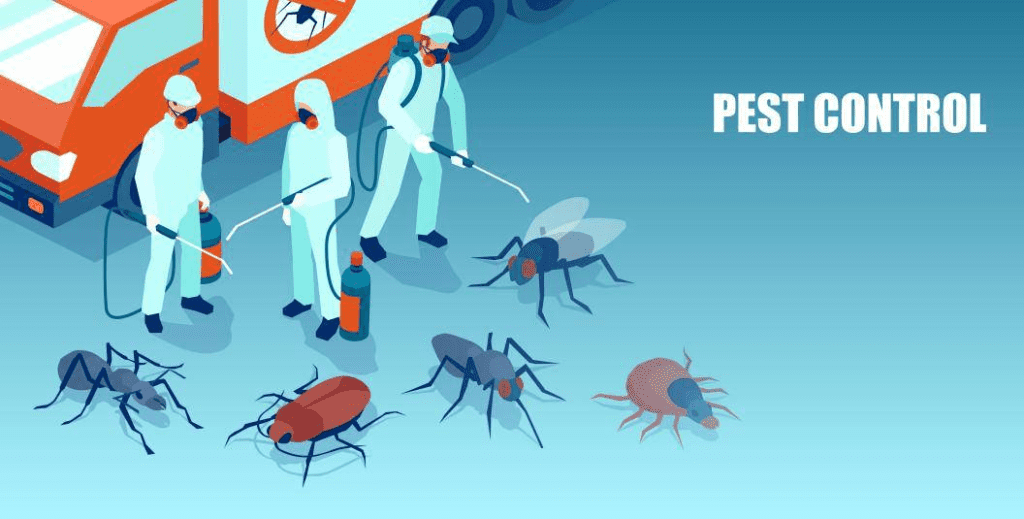What is organic pest control? If you are a gardener expert, you know that dealing with pests can be a real challenge.

Organic pest control is a natural and effective way to keep your plants healthy without harming the environment or yourself.
In this comprehensive guide, we will explain what organic pest control is, how it works, and provide you with some practical tips to keep pests at bay.
Key Takeaways
- Organic pest control is a method of managing pests using natural materials and practices that do not harm the environment.
- Organic pest control methods focus on preventing pest problems before they occur rather than treating them after they have become established.
- Organic pest control works by creating a balanced ecosystem that is not conducive to pest infestations.
- Some effective organic pest control methods include companion planting, crop rotation, natural pest predators, neem oil, and diatomaceous earth.
- Organic pest control is safer for the environment and for your health than traditional chemical pesticides and is more effective in the long run.
What is Organic Pest Control?
Organic pest control is a method of managing pests using natural materials and practices that do not harm the environment.
It involves using a variety of techniques, such as companion planting, crop rotation, and natural pest predators, to keep pests under control.
Organic pest control methods focus on preventing pest problems before they occur rather than treating them after they have become established.
How Does Organic Pest Control Work?
Organic pest control works by creating a balanced ecosystem that is not conducive to pest infestations.
By using natural methods and materials, you can control pests without using harmful chemicals that can damage the environment or your health.

Here are some of the most effective organic pest control methods:
- Companion planting: Companion planting involves planting certain plants together to deter pests. For example, planting marigolds around your vegetable garden can help to repel pests like aphids and whiteflies.
- Crop rotation: Crop rotation is the practice of planting different crops in a particular area each year to reduce pest and disease problems. This helps to break the life cycle of pests and diseases that may have built up in the soil.
- Natural pest predators: Encouraging natural predators such as birds, ladybugs, and praying mantises can help to keep pest populations in check.
- Neem oil: Neem oil is a natural pesticide derived from the seeds of the neem tree. It is effective against a wide range of pests, including aphids, mites, and whiteflies.
- Diatomaceous earth: Diatomaceous earth is a fine powder made from the fossilized remains of diatoms. It is effective against a wide range of pests, including ants, cockroaches, and fleas.
Why Use Organic Pest Control?
There are many reasons why you should consider using organic pest control methods in your garden. Here are some of the most important:
- It is safer for the environment: Organic pest control methods are much safer for the environment than traditional chemical pesticides. Chemical pesticides can harm beneficial insects and contaminate soil and water.
- It is safer for your health: Organic pest control methods are much safer for your health than traditional chemical pesticides. Chemical pesticides can cause skin irritation, respiratory problems, and other health issues.
- It is more effective in the long run: Organic pest control methods focus on preventing pest problems before they occur rather than treating them after they have become established. This makes them more effective in the long run and helps to maintain a healthy garden ecosystem.
- It is cost-effective: Organic pest control methods are often more cost-effective than traditional chemical pesticides. For example, companion planting and crop rotation require no additional cost, while natural pest predators are free.
Tips for Effective Organic Pest Control
- Identify the pest: Before you start to treat a pest problem, it is important to identify the pest correctly. This will help you to choose the most effective organic pest control method.
- Use a variety of methods: Using a variety of organic pest control methods will help to keep pests at bay and maintain a healthy garden ecosystem.
- Start early: It is important to start organic pest control methods early in the growing season to prevent pest problems from becoming established.
- Monitor regularly: Regular monitoring of your garden will help you to identify pest problems early and take action before they become established.
Why Choose Organic Pest Control?
There are many benefits to using organic pest control methods in your garden. Here are just a few:
- It’s better for the environment.
Chemical pesticides and herbicides can harm the environment and other organisms, including beneficial insects and wildlife. Organic pest control methods are much safer and gentler on the environment.
- It’s safer for you and your family.
Chemical pesticides and herbicides can be harmful to humans, especially if they are not used correctly. By using natural pest control methods, you can ensure that your garden is safe for you and your family to enjoy.
- It’s more effective in the long run.
Chemical pesticides and herbicides can be effective in the short term, but they often have negative long-term effects on the health of your soil and the organisms that live in it.
Organic pest control methods, on the other hand, can help improve the health of your soil and promote the growth of healthy plants over the long term.
Conclusion

In conclusion, organic pest control is a safe and effective way to control pests in your garden while protecting the environment and the health of your family.
By implementing natural pest control methods, you can keep your garden healthy and thriving for years to come.